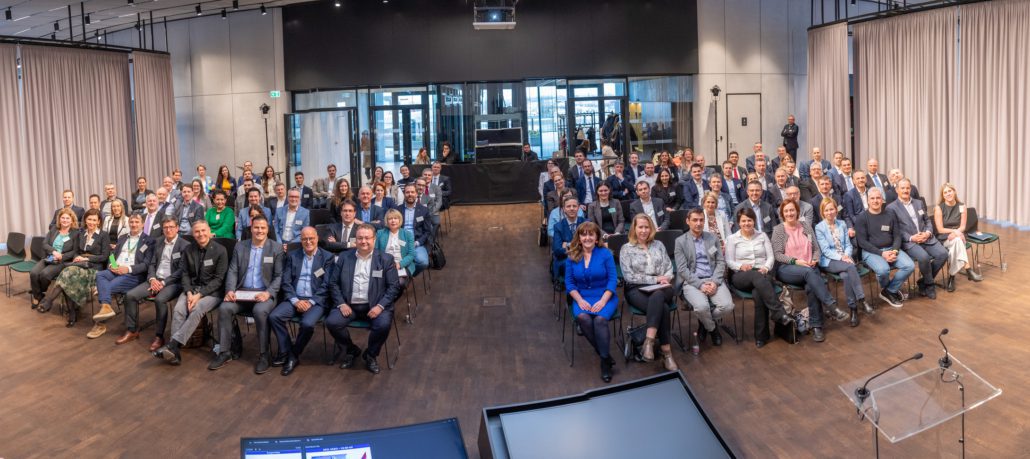We are already living in the age of climate change, but we have all the tools and opportunities we need to act. Everyone can do their part to avoid the worst possible consequences. Company leaders have a special responsibility and opportunity to make positive systematic changes. The only question is how. This was the topic of the BCSDH’s business lunch held on October 13, which focused on the Time to Transform 2030 program which is aimed at fostering systemic change, and the Race to Zero program, which is helping to achieve net-zero emissions.
At the event, which was hosted by BNP Paribas, outstanding managers, leading women, and business solutions in the field of sustainability were recognized in three categories with the ‘For a Sustainable Future’ award this year.
Budapest, 13th October 2022 – “Business as usual” is not only being questioned but has been disrupted. We still have a chance to make the world a better place, but we only have a short window of time to transform our companies, our dysfunctional systems, and our society. What is needed for these changes to happen? Who can lead this change, and how? At the business lunch of the Hungarian Business Council for Sustainable Development (BCSDH), the framework of the Time to Transform 2030 program launched this year was presented in search of answers to these questions.
This year, for the sixth time, BCSDH – comprising 128 member companies which produce around 30% of Hungarian GDP – presented the ‘For a Sustainable Future’ award in the categories of Change Leader, Leading Women, and Business Solution.
Csaba Kőrösi, President of the UN General Assembly, joined in live via video link from New York, greeted the participants, and thanked the BCSDH for recognizing and certifying outstanding work for sustainability. In his thank you speech, he emphasized that we are at the beginning of a new historical era. It is necessary to put action onto a new track: to manage the crisis and implement transformation at the same time. To solve the challenges of water, climate, energy, food, and inequalities in a transformative way, which requires leaders of change. The management of the complex crisis must be based on scientific evidence.

Gergely Litkai, the founder and director of Dumaszínház, who as a climate activist is committed to the cause of sustainability, drew attention to the need for personal responsibility in his humorous yet serious performance: “There is an increasing chance that we will exceed 1.5oC, and our current lives will surely change. We are not mentally prepared for this. Everyone must first clarify what they can change. We need to mentally prepare ourselves so that we don’t experience this change as victims, but act in the hope of a good life. We need to rethink our systems to see if the measure of success is really what we think it is now, and we need to find new values that are sustainable. And what we can do, we must do, because everyone has responsibility. Individuals must change first, because all systems are built from them“ – Gergely Litkai explained.

In his introductory remarks, Attila Chikán Jr., President of the BCSDH, highlighted: “Now is the time for action. The pace and extent of changes so far are smaller than expected. We have all the tools for avoiding climate catastrophe; we just have to use them. The current crisis cannot postpone these steps. We still have a narrow window of time for the basic and immediate transformation of our systems. As the president of BCSDH, it is clear to me that companies must be at the forefront of systemic changes. Those who act earlier are apparently less likely to suffer from external effects such as rising energy prices or disruptions in supply chains. Transformation requires a change in attitude that will fundamentally change the short- and long-term ideas and decisions of business managers. This is what our Time to Transform 2030 program, which defines this decade, is all about.”

Things have to change, but how? – this question was the focus of the CEO round-table discussion moderated by Irén Márta, managing director of BCSDH, in which Dr. Zsuzsanna Diószegi, managing director of EUROAPI Hungary Kft., Sándor Baja, managing director of Randstad Hungary Kft., and Rajmond Percze, managing director of Agroloop Hungary Kft. shared their opinions.

Based on the data from the BCSDH corporate maturity survey, in the case of 85% of the participating companies sustainability aspects are integrated into management at some level, but often to a lesser degree than the development of their visions – i.e., economic aspects still often override sustainability action.
Further, according to 2022 Towards Net Zero research, the proportion of companies targeting carbon neutrality has more than doubled (73%) compared to last year’s survey, and 79% of companies have some kind of emission-reduction goals, but only 60% have specific goals, and only 44% are measuring at least Scope 1 and 2 emissions.
Main sponsor of Race to Zero program: Budapest Airport. Highlighted sponsor: E.ON, Denkstatt: Sponsors: Alteo, Buildext, Leaseplan, Unilever.
Sponsor of BCSDH’s carbon-conscious events: LeasePlan.
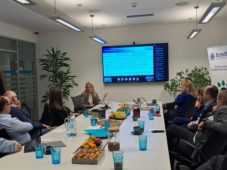


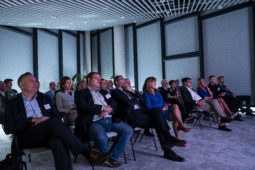

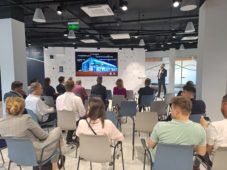


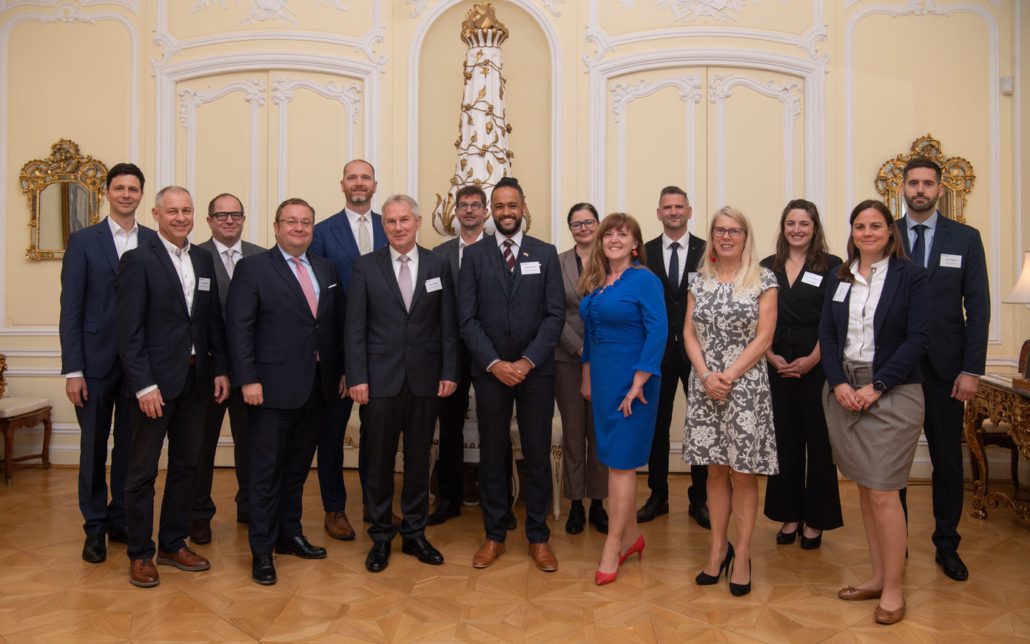
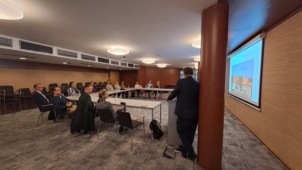

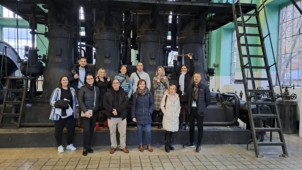


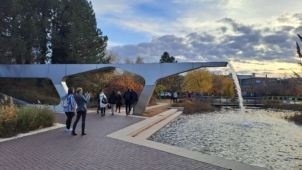





 In his opening speech, Paul Fox, the Ambassador of the United Kingdom to Hungary, emphasized the importance of collaboration, as a lot of effort needs to be done to achieve climate goals. As part of the Green Deal, the EU Net Zero Industrial Partnership initiative can contribute to accelerating this, and he requested the support of the participants for this endeavor.
In his opening speech, Paul Fox, the Ambassador of the United Kingdom to Hungary, emphasized the importance of collaboration, as a lot of effort needs to be done to achieve climate goals. As part of the Green Deal, the EU Net Zero Industrial Partnership initiative can contribute to accelerating this, and he requested the support of the participants for this endeavor.
 In connection with this, Anikó Juhász, Deputy State Secretary of the Ministry of Agriculture, reported on the Hungarian situation and possibilities of regenerative agriculture. She emphasized the importance of education and the presentation of best practices, as well as the creation of an environment where farmers can learn from each other in order to implement soil renewal solutions. Collaboration is also necessary here to take a step forward.
In connection with this, Anikó Juhász, Deputy State Secretary of the Ministry of Agriculture, reported on the Hungarian situation and possibilities of regenerative agriculture. She emphasized the importance of education and the presentation of best practices, as well as the creation of an environment where farmers can learn from each other in order to implement soil renewal solutions. Collaboration is also necessary here to take a step forward.
